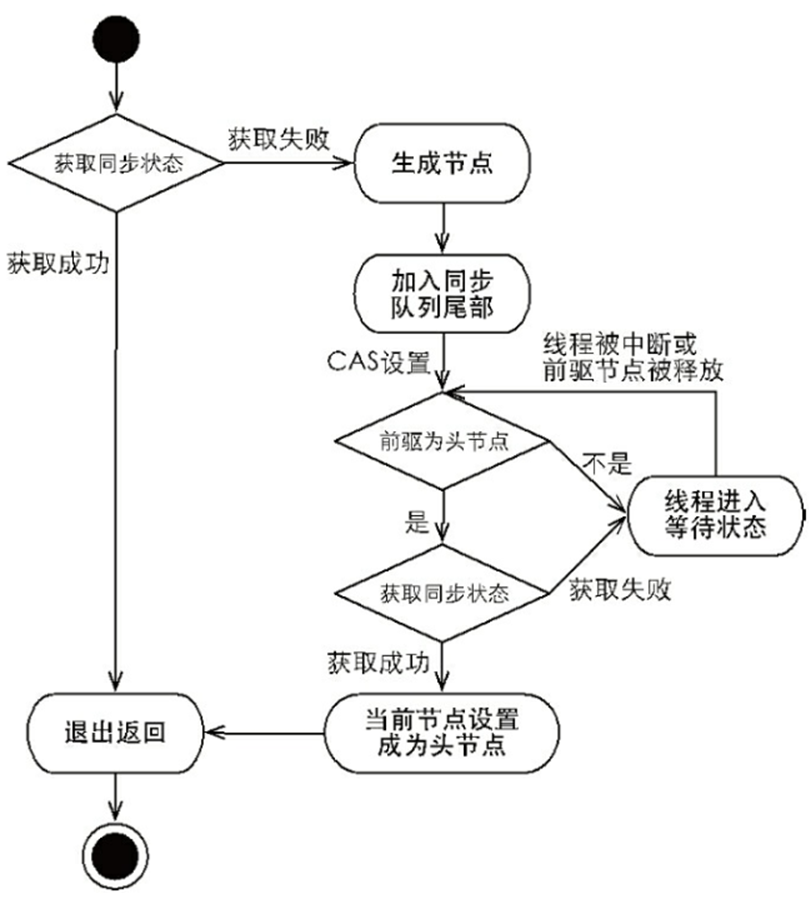Exclusive lock
Reentrant lock
In normal business work, reading and writing are more and less, and reading and writing are separated
Read write lock
Read thread - > read lock. Read lock is shared. Read lock is not excluded, but write lock is excluded
Write thread - > write lock, write lock exclusive, read and write mutually exclusive
Syn wait / notify
Lock Condition await/signal
Explicit lock
Lock interface and core method
Comparison between Lock interface and synchronized
The synchronized code is concise. Lock: obtaining the lock can be interrupted. Obtain the lock after timeout. Try to obtain the lock. Read more and write less and use the read-write lock
Reentrant lock ReentrantLock, so-called lock fairness and unfairness
If, in terms of time, the request to obtain the lock first must be satisfied first, the lock is fair. If it is not satisfied, it is unfair
Unfair efficiency is generally higher
ReadWriteLock interface and ReadWriteLock ReentrantReadWriteLock
ReentrantLock and Syn keywords are exclusive locks,
Read write lock: multiple read threads are allowed to access at the same time, but when the write thread accesses, all reads and writes are blocked, which is most suitable for the situation of more reads and less writes
Condition interface
Wait / notify with Lock and Condition
Learn about LockSupport tools
The method starting with park is responsible for blocking threads
unpark(Thread thread): it is responsible for waking up the thread
AbstractQueuedSynchronizer in-depth analysis
What is AQS?
AQS usage and design patterns
Inheritance, template method pattern
Methods in AQS source code
Template method:
Exclusive acquisition
accquire
acquireInterruptibly
tryAcquireNanos
Shared acquisition
acquireShared
acquireSharedInterruptibly
tryAcquireSharedNanos
Exclusive release lock
release
Shared release lock
releaseShared
Process methods requiring subclass coverage
Exclusive get {tryAcquire
Exclusive release {tryRelease
Shared access tryAcquireShared
Shared release {tryrereleaseshared
Is this synchronizer in exclusive mode
Synchronization state:
getState: get the current synchronization state
setState: sets the current synchronization state
compareAndSetState uses CAS to set the state to ensure the atomicity of the state setting
Data structure in AQS - nodes and synchronization queues
Threads that fail to compete will be packaged into nodes and placed in the synchronization queue,
Possible states of Node:
CANCELLED: the thread has timed out or been interrupted and needs to be removed from the queue
SIGNAL: the following nodes are in the waiting state. The current node notifies the following nodes to run
CONDITION: the current node is in the waiting queue
PROPAGATE: shared, indicating that the state should be propagated to the following nodes
0: indicates the initial state
Addition and removal of nodes in synchronization queue
The node joins the synchronization queue

Change of first node

Exclusive synchronous state acquisition and release
Acquisition and release of exclusive lock?
(release: traverse backward from the tail to find the actual UN cancelled subsequent items...)

Condition analysis
await/signal
public void changeKm(){
lock.lock();
try {
this.km = 101;
keCond.signalAll();
}finally {
lock.unlock();
}
}
public void changeSite(){
lock.lock();
try {
this.site = "BeiJing";
siteCond.signal();
}finally {
lock.unlock();
}
}
public void waitKm(){
lock.lock();
try {
while(this.km<=100) {
try {
keCond.await();
System.out.println("check km thread["+Thread.currentThread().getId()
+"] is be notifed.");
} catch (InterruptedException e) {
// TODO Auto-generated catch block
e.printStackTrace();
}
}
}finally {
lock.unlock();
}
System.out.println("the Km is "+this.km+",I will change db");
}
public void waitSite(){
lock.lock();
try {
while(CITY.equals(this.site)) {
try {
siteCond.await();
System.out.println("check site thread["+Thread.currentThread().getId()
+"] is be notifed.");
} catch (InterruptedException e) {
// TODO Auto-generated catch block
e.printStackTrace();
}
}
}finally {
lock.unlock();
}
System.out.println("the site is "+this.site+",I will call user");
}